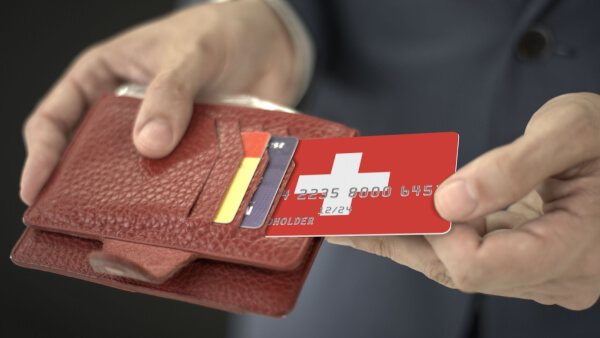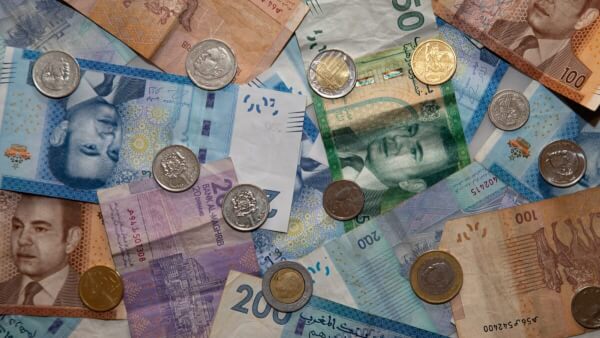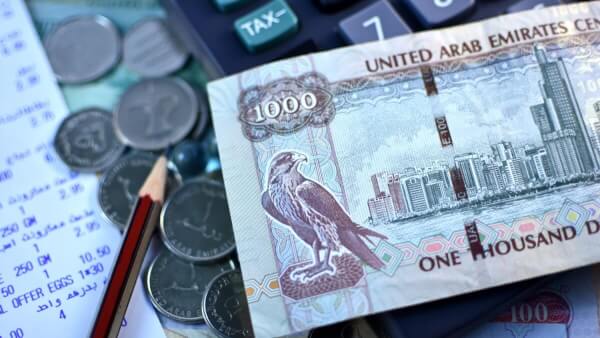Can I keep my Swiss bank account when I leave Switzerland?
Read our handy guide on if you can keep your bank account in Switzerland if you move abroad? Find out everything you need to know.

Planning to live, work or study in Indonesia? It’s easy to see why this beautiful archipelago of islands is popular with expats, as it boasts a tropical climate, amazing food and stunning beaches. You can immerse yourself in the country’s rich culture and enjoy some eye-opening adventures.
One of the first things you’ll need to do when moving to Indonesia is to open a bank account. It isn’t compulsory to have one, but it could make it much easier to pay in your salary and cover your bills.
In this guide, we’ll look at how to open a bank account in Indonesia as a foreigner. As many banks in Indonesia offer dedicated English-speaking services to expats¹, you shouldn’t find it too difficult.
Let’s start with the paperwork you’ll need.
Before applying for your new Indonesian bank account, it’s a good idea to check with the bank (or look on their website) to see what documents are needed.
It can vary from bank to bank, but the main documents you’re likely to need are:¹
Some banks won’t require all of this, especially if you have a non-work-related KITAS. But it doesn’t hurt to have it ready just in case, to prevent any delays in opening your new account.
The most important thing to have when applying for a bank account in Indonesia as a foreigner is your temporary resident permit card (KITAS). Without one, you’ll find it very difficult if not impossible to open a bank account².
But once you have your paperwork in order, you could have a new Indonesian bank account open in as little as a day¹. Simply head into your local branch with your documents and start the process. Many banks will have an English-speaking customer service representative¹ on hand to guide you through the process.
Unfortunately, most banks in Indonesia will not permit you to complete the process of opening a bank account online from another country.
You may be able to start the process by downloading or completing an online application form. But for the account to be officially opened, you will need to confirm your details and/or hand in your paperwork in person.² This means a visit to a branch of the bank in Indonesia.
There are around 111 banks in Indonesia³, including state-owned, regional-owned, private and foreign banks. The central bank is Bank Indonesia (BI), which oversees the banking sector.³
You’ll have a lot of options to choose from, including international banks such as HSBC and Maybank which offer dedicated solutions for expats.
But here are just a few of the most popular banks in Indonesia for newcomers:
One of the largest private banks in the country, Bank Central Asia has a huge number of branches and ATMs. This is what makes it arguably the best bank in Indonesia for expats, simply for convenience.
It’s also a popular choice for people looking to open a bank account in Bali, with many expats there choosing BCA⁴.
BCA offers an eye-watering number of accounts, services and e-banking solutions. But one of its best options for everyday banking and saving is the Tahapan BCA account⁵. It’s designed for easy withdrawals, deposits and payments and comes with a card that can function as both a debit and credit card. There’s a monthly admin fee to pay, which varies depending on whether you sign up as a Blue, Gold or Platinum member.
Bank Mandiri is another of the big players in the Indonesian banking sector, with its headquarters in Jakarta.
Despite the name, its Mandiri Saving Account⁶ is a decent option for everyday spending. You’ll get a Mandiri debit card for use in shops and at one of the many Bank Mandiri ATMs across the country. You can manage your account online and by phone. To open this account, you’ll need to make an initial deposit and pay an ongoing monthly admin fee.
One of Indonesia’s state-owned banks, BNI also has branches in other parts of the world including London and New York.
In Indonesia, among the many personal accounts on offer is the BNI Taplus account⁷. This offers a linked debit card for spending and ATM withdrawals, internet, phone and SMS banking, and interest on your balance.
As well as being a major bank in Indonesia, BRI also has a presence in the US and other Asian markets. This makes it a good bet for newcomers to Indonesia, as it can facilitate easier transactions around the world.
The most suitable current account for new arrivals to Indonesia is the BRI Rupiah Giro.⁸ This is a simple account into which your employer can pay your salary and you can carry out everyday banking. It has a monthly admin fee (waived if you meet a minimum balance) and comes with an ATM Debit Card. It’s also only available to people aged 21 or over.
Most bank accounts in Indonesia come with a monthly admin fee of around Rp. 15,000 to 20,000⁵. This sounds like a lot, but it’s actually only around £0.80-£1 a month.
You’ll also need to make an initial deposit of around Rp. 500,000.00⁶ (around £26) with most banks. And make sure you check the small print for charges if your balance drops below a certain level.
Most banks in Indonesia will let you withdraw cash at their ATMs for free, although there may be a charge for using another bank’s ATM.
Lastly, there are international transfer fees to think about. Most banks in Indonesia will charge a flat fee to send money abroad and there may also be a fee charged by the receiving bank.
But there’s also the exchange rate mark-up to consider. If the currency is converted using an unfavourable exchange rate, this could end up costing you far more.
If you do want to send money abroad from Indonesia, the cheapest way to do it isn’t likely to be your bank. Luckily, there’s an alternative – Wise.
Open a multi-currency Wise account and you can make international transfers for tiny fees and the real, mid-market exchange rate. It could save you a bundle, especially if you regularly send money home, are trying to run an international business or get paid as a freelancer from overseas clients.
What’s great about Borderless with Wise is that you can open an account before you go. So, if you’re facing delays getting your Indonesian bank account open, you’ll still have a way to make and receive those essential payments.
And once your bank account is up and running, you can still use Wise to save money whenever you need to make an international transfer.
So that’s it – the lowdown on how to open a bank account in Indonesia as a foreigner. After reading this guide, you should have a better idea of the documents you’ll need and how to apply. It may seem at first like you need reams of paperwork, but the process shouldn’t be too difficult. It always pays to have everything on the list, just in case.
Crucially, you should also now know the fees to watch out for, and the best banks for expats on the archipelago.
Good luck on your Indonesian adventure!
Sources used:
Sources checked on 12-January 2021.
*Please see terms of use and product availability for your region or visit Wise fees and pricing for the most up to date pricing and fee information.
This publication is provided for general information purposes and does not constitute legal, tax or other professional advice from Wise Payments Limited or its subsidiaries and its affiliates, and it is not intended as a substitute for obtaining advice from a financial advisor or any other professional.
We make no representations, warranties or guarantees, whether expressed or implied, that the content in the publication is accurate, complete or up to date.

Read our handy guide on if you can keep your bank account in Switzerland if you move abroad? Find out everything you need to know.

Read our guide and find out how to open a Chase UK account, how long the process takes and all the details you need to get started.

Read our guide to Starling Bank limits on UK and international transfers, ATM withdrawals and card spending for personal customers.

Find out how to open a Starling Bank account online in the UK with our comprehensive guide, covering eligibility, requirements and how to get started.

A list of the top 10 banks in Morocco, including CIH Bank, Attijariwafa Bank, Bank of Africa and Al Barid Bank.

A list of the top 10 banks in Dubai, including Emirates NBD, First Abu Dhabi Bank, Mashreq Bank, RAKBANK and HSBC UAE.